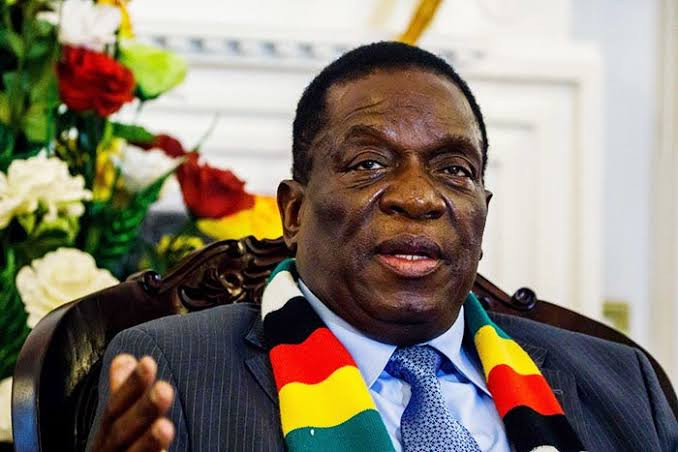
ZIMBABWE has accelerated its efforts to develop carbon credits projects as it seeks to advance environmental conservation and general stimulation of economic growth.
Carbon credits are tradable certificates representing one metric ton of carbon dioxide (CO2) equivalent that is either prevented from being emitted into the atmosphere or removed from the atmosphere as a result of climate change mitigation actions.
Under the 2015 Paris Agreement, countries set Nationally Determined Contributions (NDCs), outlining their emission reduction targets, to avoid the disastrous impacts of climate change and hold global average temperature increase to well below 2°C above pre industrial levels.
Article 6,2 of the Paris Agreement acknowledges that countries need to cooperate to achieve these targets and outlines the possibility of cooperative approaches via the trading of Internationally Transferrable Mitigation Outcomes (ITMOs) or “Carbon credits” between different actors, for example, countries, and private sector companies, through bilateral agreements.
In a landmark development for climate action and community empowerment, Blue Carbon and the government joined forces through a Memorandum of Understanding (MOU) for developing carbon credit projects and sustainable initiatives in the Agriculture, Forestry, and Other Land Use (AFOLU) sector on 7,5 million hectares of land under Article 6,2 of the Paris Agreement.
Their partnership aims to facilitate the creation of carbon credit schemes and enduring sustainable projects within the Agriculture, Forestry, and Other Land Use (AFOLU) sector, encompassing an expansive 7,5 million-hectare land area as specified by Article 6.2 of the Paris Agreement.
The MOU was signed between Environment Minister Nqobizitha Mangaliso Ndhlovu and Blue Carbon chief executive officer, Josiane Sadaka.
This collaboration is geared towards establishing enduring conservation projects that span an expansive 7,5 million hectares within Zimbabwe.
- Ceteris Paribus: COP27 through African lens
- Quantifying Africa’s emissions for carbon credits
- African leaders urge West to live up to climate change pledges
- Situating businesses as agents of climate action solutions
Keep Reading
These conservation efforts extend beyond reducing carbon emissions to bring about substantial enhancements to local communities through a holistic circular economy approach.
Within this initiative, the circular economy concept takes centre stage. By creating job opportunities and implementing capacity-building programs, the conservation projects are designed to empower the communities themselves.
People will not only be involved in conservation programs but will also be equipped with skills that can lead to more sustainable livelihoods.
Furthermore, the communities stand to benefit through a well-structured benefit-sharing mechanism. A portion of the carbon credits generated by these projects will be reinvested into the communities.
This means as the conservation initiatives succeed and carbon emissions are reduced, the communities directly impacted by the projects will reap the rewards.
This innovative approach ensures that the people living within and around the conservation area become stakeholders in the success of the initiatives.
While the primary focus remains on carbon emissions reduction, this collaboration goes above and beyond, creating a comprehensive network of positive outcomes.
One of the most noteworthy aspects of this partnership is the introduction of Community Welfare Programs.
The funds generated from carbon credits will be channelled into a range of social endeavors that are essential for community well-being.
This encompassing approach includes bolstering healthcare facilities, improving educational opportunities, fostering skill development, and even nurturing the establishment of small-scale industries.
This multifaceted strategy is poised to generate a cascade of benefits, elevating the quality of life for the local communities while also contributing to broader conservation goals.
According to documents, all carbon credits projects currently running in Zimbabwe have been based on a voluntary basis.
“Voluntary carbon credits projects are run exclusively by private entities that are selling the credits on international markets using different platforms or closing private agreements with other foreign parties,” read part of the documents seen by this publication.
According to the documents, there are two types of markets: Voluntary and compliance. Voluntary carbon credits have less value in the market in comparison to compliance.
“In the compliance market, the carbon credit can be transferred or sold from one country to another country through facilitators or partners,” reads the documents.
A proper agreement between the government of Zimbabwe and Blue Carbon will be signed specifying all the terms, responsibilities and profit sharing.
Blue Carbon is a Dubai-based company under the patronage of the Member of Dubai's Ruling Family Sheikh Ahmed Dalmook Al Maktoum, formed to create environmental assets, and nature-based solutions and register carbon projects under eligible methodologies.










